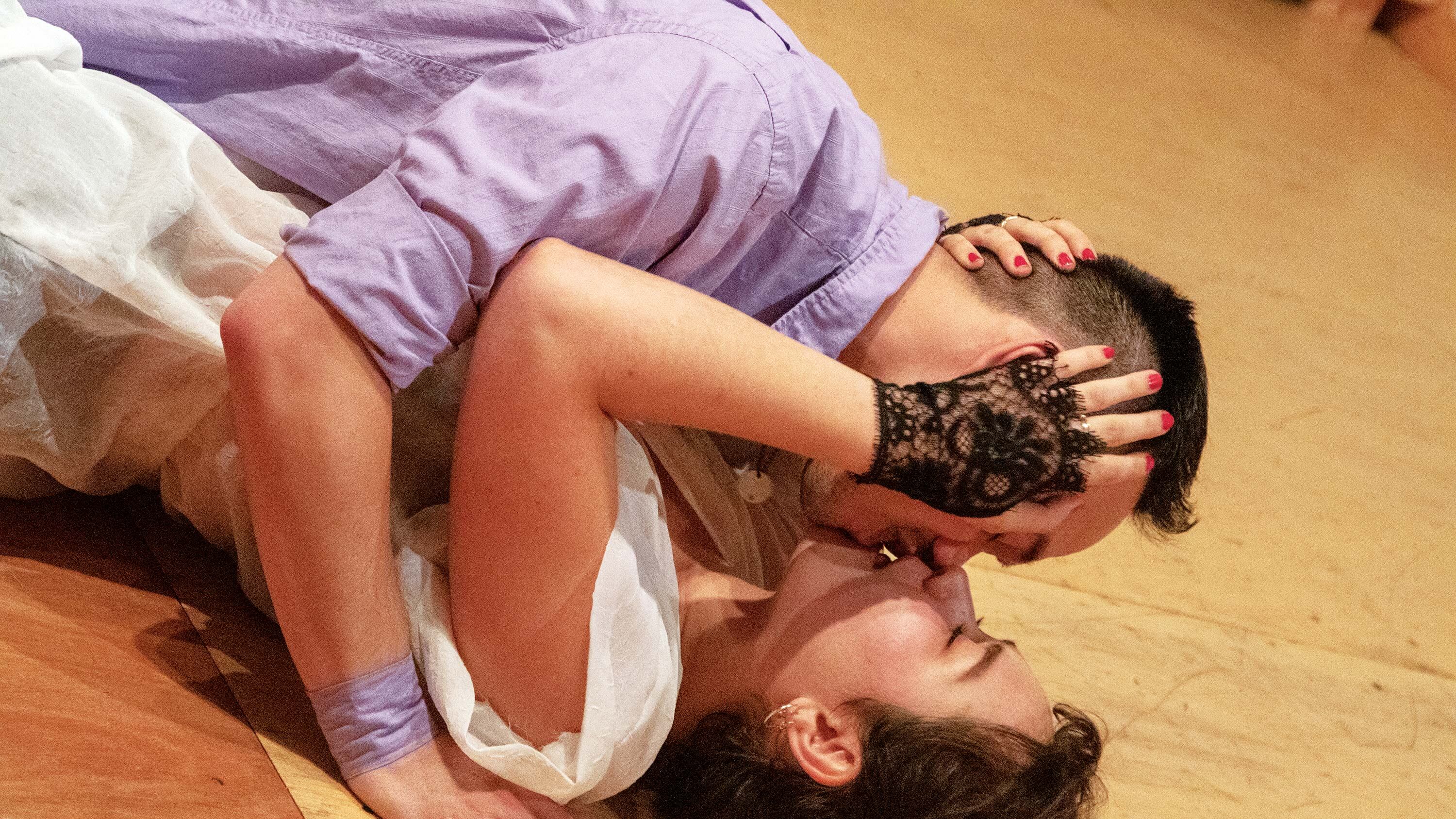From Hamlet's noble last stand to Romeo and Juliet's rapturous demise, Shakespeare's plays are rife with aesthetically pleasing ends. Yet in his Trojan War saga Troilus and Cressida, most of the main characters are denied the honor of a poetic death. It's a tale that prefers to reject the opportunity for a crowd-pleasing catharsis and allow its cast of morally tainted warriors to miserably survive.
While the bleak ambiguity of Troilus and Cressida feeds into the pervasive narrative that it is a "difficult" play, that hasn't daunted Salt and Sage Productions. Transforming difficulty into opportunity, the company has crafted a production that mainlines the play's violent, sensual energy and delivers a potent take on Achilles, the story's most tormented and entertaining character.
Achilles initially takes a backseat to the Trojan king's youngest son, Troilus (Samson Syharath), who romances the elusive Cressida (McKenzie Rummel) with the help of her uncle, Pandarus (Enrique Andrade). Troilus and Cressida's bliss is blighted, however, by the ongoing battle between the Trojans and the Greeks, who are trying (and failing) to lure the formidable but lazy Achilles (Alwynn Accuardi) back to the frontlines so that they can conquer Troy and bring seven years of fighting to a close.
With its narrative maze of mutable loyalties and intricate schemes, Troilus and Cressida can be a struggle to comprehend—especially where Cressida is concerned. A puzzling character who goes from disdaining Troilus to embracing his advances to submitting to the Greek commander Diomedes (Alex Albrecht), she exists at the intersection of complexity and convolution. Whether she is doing what she believes is necessary to survive—her deference to Diomedes comes after she is sexually assaulted at the Greek camp—or is simply a product of inconsistent writing is up for debate.
Luckily, the play is more than the sum of its title characters. The story of how Achilles' indolence gives way to wrath in the wake of an agonizing loss is one of the most chilling plotlines in Shakespeare's oeuvre—and an ideal vehicle for Accuardi's scorching charisma. Whether she's sauntering into battle with a drink in hand or taunting her nemesis, Hector (Albrecht), with cold ferocity ("Look, Hector, how the sun begins to set"), she makes you believe Achilles' conquests are not Hector's but hers.
Accuardi has also done astounding work as the play's intimacy consultant and violence designer. There is something magnificently sexy about this version of Troilus and Cressida. The production is enlivened by both the palpable chemistry between Syharath and Rummel and a series of subtly suggestive moments, like when Troilus lovingly massages Pandarus' shoulders, adding an unexpected layer to their mentor-protégée bond.
The climactic showdown between the Trojan and Greek forces is equally inventive. It's a model of how to favor brutality over coolness, thanks to the animalistic shouts of the combatants and the way the fight choreography sprawls across the amphitheaterlike set. While Shakespeare's tragedies often end with societal order restored, this play is largely about chaos, and director Asae Dean and Accuardi have beautifully used the fighting to express that theme in visual terms.
There's a theory that Troilus and Cressida was originally performed for law students, which would explain a lot—there are moments when the play seems as impenetrable as legalese. Yet the genius of this production is that it punches through the story's dusty surface and reveals the currents of hate, love and lust that ripple beneath. It's a striking achievement and a reminder that while Troilus and Cressida isn't as inviting as some of Shakespeare's more vaunted works, it can be entrancing and powerfully troubling when it's done right.
SEE IT: Troilus and Cressida is at Shaking the Tree Theatre, 823 SE Grant St., saltandsageproductions.com. 7:30 pm Thursday and 1 pm Saturday, Aug. 15 and 17. $5-$25.
